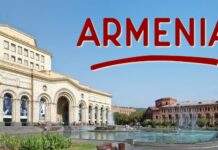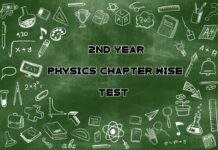M.A History Syllabus Part I Of 2022
Introduction:
Table of Contents
History deals with the record of the past. However, it is not just a plain record but rather the construction, interpretation and evaluation of the past, which is the subject matter of history. As the past, present and the future are inextricably linked, the importance of history cannot be denied. The true dissemination of historical knowledge is therefore a pre-requisite for a nation’s development. That is the reason that from ancient times, the teaching of history at all levels has remained an essential part of the curricula of the Universities. In the University of the Punjab, M.A History Syllabus was first introduced in 1933. Since its introduction, three quarters of a century ago, this M.A History Syllabus were modified at different times. However, for a number of years, the need had been felt to completely review the Programme and update M.A History Syllabus according to the changing needs of the time and according to the modern teaching-learning strategies.
2. Aims and Objectives:
- To cater to the need of the nation to produce the researchers and scholars who can write political, social, economic and intellectual history of the people of Pakistan.
- To produce such academics who can teach history in schools, colleges and universities at the graduate and undergraduate levels.
M.A History Syllabus Part I
List Of Part I Subjects
Course HIS/501 Early History of Islam
Course HIS/502 Research Methodology & Historiography
Course HIS/503 State and Society in Muslim India 1206-1707
Course HIS/504 Muslim Struggle for Independence 1858-1947
Course HIS/505 Government & Politics in Pakistan 1947-1999
COURSE HIS/501
EARLY HISTORY OF ISLAM
1. Brief Description:
This course deals with the period of the emergence and rise of Islam. It focuses on the life of the Holy Prophet (Peace be upon him) and the period of the Pious Caliphate. It also discusses the administrative and intellectual development of the period.
2. Aims & Objectives:
After studying this course, the students will be able to:
- Appreciate the revolutionary changes brought by Islam to the Arabian society
- Develop an insight into the growth and development of a major religion of the world from a historical perspective
- Have an in-depth study of the socio-political thoughts, administrative setup and intellectual developments of early Islamic period
3. Contents:
1.Conditions of Pre-lslamic Arabia:
Geography, Polity, Socio-Economic Conditions, Tribal System, Trade and Commerce, Major Religious Communities, Kingdom of Hira, City State of Mecca.
2. Life of the Holy Prophet (Peace be upon him):
Early life, declaration of Nabuwwat, reaction, Hijrat, City State of Medina, Ghazawat, the Conquest of Mecca, the Last Sermon, Transformation of Society, Political and Economic System, Administration of justice, Advancement of education, Learning and scientific approach, Policy towards Non-Muslims, Foreign relations and Military system, Spread of Islam.
3. Hazrat Abu-Bakar:
Early life, Sacrifices for the cause of Islam, Election as Caliph, Early difficulties, Munkreen-i-Zakat, apostacy, consolidation of the state, conquest of Iraq, foreign policy towards Iran, Syria and Byzantine, compilation of Quran, character and achievements.
4. Hazrat Umar bin Khattab :
Early life, servics for Islam, election as Caliph, Expansion and conquests, reforms, character & achievements.
5. Hazrat Usman :
Early life, role during the life of Holy Prophet, Hazrat Abu Bakar and Hazrat Umar, election as Caliph, foreign policy and expansion of the state, martyrdom and its consequences, character and achievements.7
6. Hazrat Ali:
Early life, services for the cause of Islam, election as Caliph, early difficulties, relations with Amir Muawiyah, the Kharjites, Hazrat Ali’s martyrdom, character and achievements. Imam Hasan as Caliph, his abdication.
7. Study of Some Special Personalities:
Study of Hazrat Khadija, Hazrat Fatima, Hazrat Ayesha, Abdullah bin Umar, Abdullah bin Abbas, Abdullah bin Masud, Abu Zarr Ghaffari, Saad bin Waqas, Amr-bin al Ass, Abdur Rehman bin Auf, Abu Obeida bin al Jarrah.
8. Political and Administrative Set-up:
Political System under the Pious Caliphate, Central & Provincial Administration, Revenue System, Administration of Justice, Education and advancement of learning, Military system, State of society, Public Welfare works, Policy towards non-Muslims, Expansion and Conquests.
COURSE HIS/502
RESEARCH METHODOLOGY AND HISTORIOGRAPHY
1. Brief Description:
This course focuses on the concept and methodology of history writing. It also orients the students with basic tools and methods of research. It enlightens them with the styles and trends of history writing in ancient, medieval and modern times. It also deals with the basic issues of the philosophy of history.
2. Aims & Objectives:
After studying this course, the students will be able to:
¾ Do research independently by following research tools and historical methodology. ¾ Differentiate between pseudo-historical facts—propaganda, glorification etc.—and true historical facts. ¾ Develop historical consciousness.
3. Contents:
Part-I. Methodology
- History: Its Definition, Meaning and Value
- Nature of History: Science or Art
- Varieties of History
- Research Process
- Concept of Research: Hypothesis, variables, theory
- Data Collection Techniques
- Historical Sources: Documentary & Non Documentary Sources
- Auxiliary Sciences
- Historical Criticism: Internal; External, Textual
- Writing for Historical Research: Technique & Method
Part II. Philosophy of History
- Philosophy of History: Meaning and concept
- Islamic concept of History
- Critical Philosophy of History
Development of the concept of History in ancient, medieval and modern period with special emphasis on the following historians:
- Herodotus
- Thucydides
- Al-Tabari
- Al-Masudi
- Gibbon
- Ranke
4. Speculative Philosophy of History
Study of different theories of History in ancient, medieval and modern period with special emphasis on the following:
- Ibn Khaldun
- Vico
- Hegel
- Karl Marx
- Oswald Spengler10
- Arnold Toynbee
5. Modern Trends in History Writing.
COURSE HIS/503
STATE AND SOCIETY IN MUSLIM INDIA (1206-1707)
1. Brief Description:
The course deals with the growth and development of administrative and cultural institutions and policies during the five centuries of Muslim rule in India. It focuses on the politico-administrative system, cultural norms and socio-religious practices of the period.
2. Aims & Objectives:
- After completing this course, the students will be able to:Appreciate the evolution of modern administrative institutions and sociopolitical ideals
- Have an insight into working of the medieval state
- Know about the social, economic and cultural norms of the medieval period
3. Contents:
- Evolution and development of Political System.
- Sultan-Padshah: their duties and responsibilities.
- Administration.
- Royal Cabinet and Central Administration. Provincial Administration.
- Local Administration.
- Legal and Judicial System.
- Muhtasib and Police.
- Economic System: Land Revenue, Taxation, Trade and Commerce
- Military Administration. The Feudal and the Mansabdari System.
- Religious, and Scientific Education.
- Society and Culture: Status of Non-Muslims, Literature, Poetry, Architecture, Painting, Calligraphy, Music, Dress, Diet and Sports. Role of Ulema, Chishtia, Suharwardiya, Naqshbandia and Qadaria orders.
COURSE HIS/504
MUSLIM STRUGGLE FOR INDEPENDENCE (1858-1947)
1. Brief Description:
The purpose of the course is to discuss political, constitutional, economic and religious struggle of the Muslims of South Asia under the British Raj. After one thousand years’ Muslim rule, India came under the British. Therefore, a triangular struggle ensued after 1857 which culminated in the freedom of India. Hindu Muslim tangle sharpened to such an extent that the Muslims demanded a separate homeland of Pakistan. The struggle for Pakistan is one of the most complicated, complex and painful era of the Muslims of South Asia. They achieved Pakistan in 1947 but at a very high price of life & property, only because they wished to have an Islamic state.
2. Aims & Objectives:
After completing this course, students will be able to understand:
- origin and outcome of the Muslim struggle for Pakistan
- the role of Muslim leaders such as Sir Syed Ahmad Khan, Allama Iqbal and Quaid-i-Azam.
- the Two-Nation Theory which is essential to create a sense of Pakistani Nationalism.
3. Contents:
- Aligarh Movement.
- Partition of Bengal.
- Simla Deputation.
- All India Muslim League.
- Khilafat movement
- Simon Report.
- Nehru Report.
- Jinnah’s Fourteen Points.
- Allahabad Address.
- Congress Ministries.
- Lahore Resolution.
- Cripps Proposals.
- Rajagopalachari Formula.
- Wavell Plan.
- Gandhi – Jinnah Talks.
- Cabinet Mission Plan.
- 3rd June Plan.
- The last Viceroy: Lord Mountbatten and the transfer of Power in India
COURSE HIS/505
GOVERNMENT & POLITICS IN PAKISTAN (1947-1999)
1. Brief Description:
Pakistan, since its birth, has been facing constant political and constitutional crises, where parliamentary democracy is yet to be established on firm footing. Therefore, it is important to study the constitutional and political developments in Pakistan. The aim of the course is to acquaint the students with the nature and direction of the constitutional and political developments in Pakistan. A special focus shall be on the role of the political leadership and that of militarybureaucratic leadership in the political institutionalization in Pakistan.
2. Aims & Objectives:
After completing this course, the students will be able to:
- Understand the constitutional and political issues and problems and the causes of the dilemma of parliamentary democracy in Pakistan.
- Comprehend the working of the administrative and political machinery
- Analyze the security dilemmas of Pakistan
3. Contents:
i) Early Problems of Pakistan.
ii) Quaid-i-Azam As Governor General.
iii) Interim Constitutional Set-up.
iv) Constitution – Making 1947-1956.
v) Working of the Constitution of 1956.
vi) Causes of Martial Law of 1958.
vii) Ayub Khan’s Era.
viii) Yahya Khan’s Regime.
- Legal Framework order.
- General Elections 1970.
ix) Separation of East Pakistan: Causes and Effects.
x) Zulfiqar Ali Bhutto’s Period.
- Major policies and Reforms.
- Anti-Bhutto Movement.
- Causes of his fall.
xi) Zia-ul-Haq’s Era.
- Constitutional Measures.
- Political Development.
xii) Revival of Democracy: 1988-1999.
xiii) Major Political Parties.
- Pakistan Muslim League.
- Pakistan People’s Party.
- Jamat-i-Islami.
- Mutahida Qaumi Movement.
xiv) Foreign Policy.
- Determinants of Pakistan’s Foreign Policy.
- Development of Pakistan’s Foreign Policy.
M.A History Syllabus Part II In 2022
























